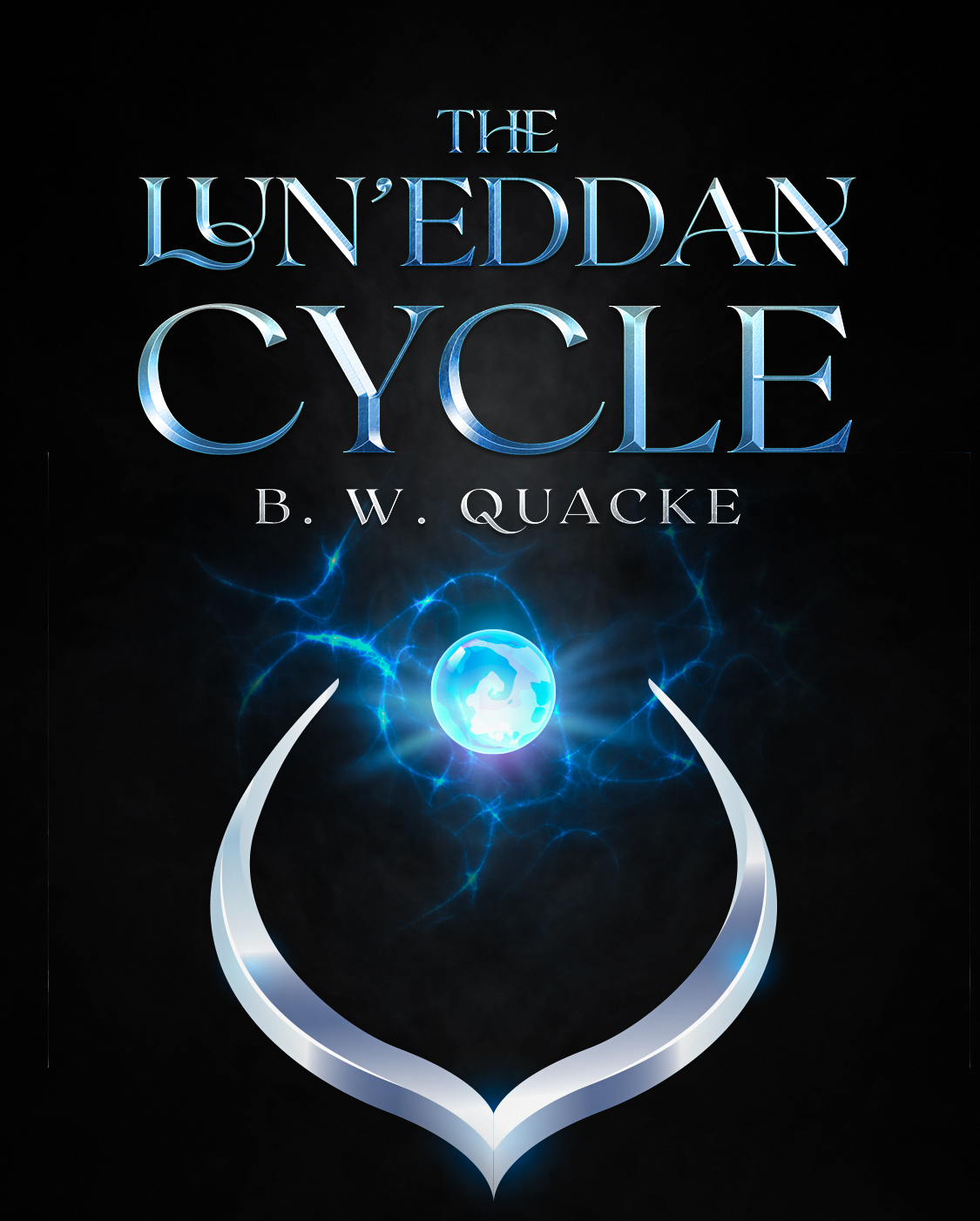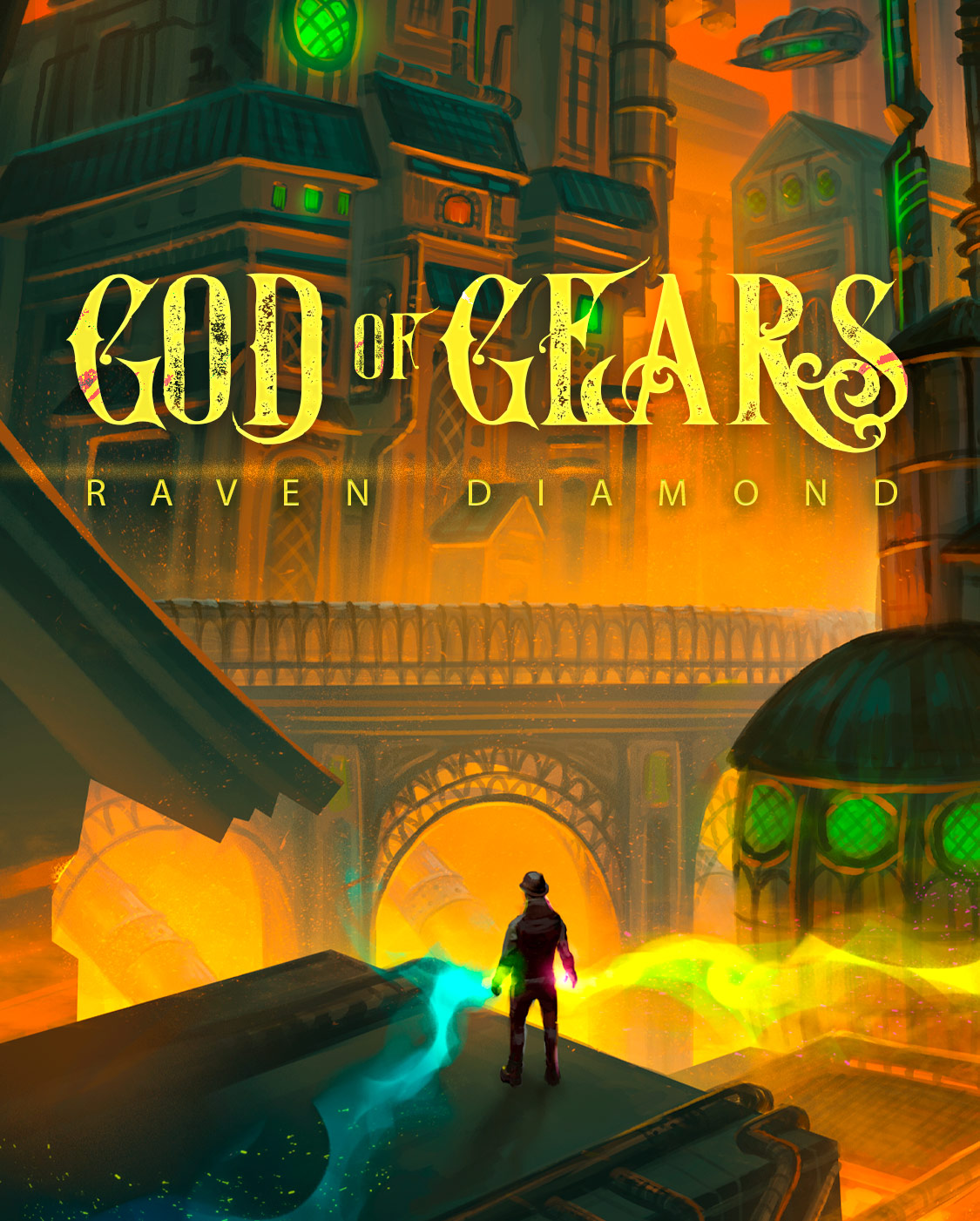Summary
What would the world look like if Hitler had possessed the Nuclear Bomb? Had the United States and Germany been equipped to end the war in a nuclear holocaust?
Word has reached the governors of the UWES that Russia has recovered an undetonated nuclear bomb, technology that is lost everywhere else in the world. They carry it onboard their new superweapon, the Potemkin, a gigantic airship. Afraid of what the Tsar may do with his weapons, the UWES dispatches a mercenary, Dario Vilhena, to steal one vital piece of the bomb before it can be completed. But another group also hijack the Potemkin. Suspicion immediately falls upon the UWES for both disappearances and, fearing that their enemy may have a functioning bomb and the means to deliver it, the Tsar orders the invasion of Western Europe. But the shady organization truly responsible for the hijacking quickly intervene, and Europe falls under their control. But they haven’t got the complete bomb.
The last piece has fallen into the hands of a lone orphan girl.
EPISODE 1
As he looked out of the downward-facing bow windows of the gondola to watch the lights of Odessa shine some twenty thousand feet below him, Captain Saulkov felt a chill wondering how many people there were down there, going about their lives completely oblivious to the weapon of instantaneous and absolute destruction that was passing high above their heads.
If it were complete, one button was all it would take…
Rain glittered against the darkness as it caught the gondola lights on its way down to the glowing pool. Saulkov wondered if there was a massive gap in the rain that moved through Odessa. A moving dry shelter in the shape of a zeppelin. He couldn’t hear the rainfall – the giant torpedo-shaped canvas that the sheets of rain hammered onto and cascaded down were too far above them. Its flanks bulged too far around the crew’s quarters and gun decks. And the hum of the engines, an incessant drone, was too loud and too constant.
The city lights passed beneath them while he dreamed. Now below was just the pitch-black void that was the Black Sea.
‘ETA?’ Saulkov asked the pilot, Elena Alexandrovna Kozhurov.
‘Approximately one hour, fourteen minutes, Captain,’ she drawled from her chair behind the wheel.
The distress signal from Snake Island had come less than half an hour ago. They’d get there before any assailants could escape. It was a naval outpost anyway; if it were under attack, they’d surely be able to hold themselves for another two hours.
Down a step and to Kozhurov’s left sat navigator Igor Vladimirovich Melnikov, and beside him, opposite to the pilot, was Saulkov’s seat. He hadn’t sat in it since taking the Captaincy.
It was all too impressive to just sit and work.
When the Tsar discovered there was the possibility of possessing a working nuclear weapon, he needed a vehicle that could deliver it effectively. But airplanes were still long out of manufacture, aside from a few rumored test flights in the United States. He needed a flying machine that could carry a crew at safe heights, travel swiftly, and deliver the single payload. When they’d said it would be a zeppelin, nobody had high hopes. But from the moment he saw the Potemkin, Saulkov knew they’d be just fine.
‘Has anything changed?’ he asked Melnikov, who listened to a faint radio at his controls.
‘Distress signals sounding intermittently, sir.’
‘Still no communication?’
Melnikov shook his head, no.
They traveled onward in darkness and silence. Saulkov had time to think about the job at hand. Snake Island was a naval outpost, populated by the crews of coastal patrollers and their families. Aside from defending the Empire’s borders from illegal immigrants coming from North Africa via Turkey, who were all to be viewed as hostile insurgents, their sole mission was to sound the distress signal if either LAIC insurgents or the GEESR launched an attack against them. Snake Island was to be the first point of contact if war broke out between either state and the Empire.
He wondered which it could be. If the attack came from, say, Romania it would be a conventional war between Greece and the Empire. If it was Turkey, it would be another long anti-insurgent conflict with no clear solution, like the one the UWES had got itself embroiled in with the Jesuit Free State. If it was war, Saulkov hoped he’d be firing the first shot against GEESR. They were basically Bolshevik, after all.
‘Melnikov, I want two destroyers dispatched,’ he ordered when the time felt right.
‘Sir.’ Melnikov picked up his radio. ‘Potemkin, Yuzhne. Message.’
‘Potemkin, send message.’
‘Yuzhne, make destroyers two.’
‘Affirmative, Potemkin.’
Saulkov had to remember to breathe steadily and be prepared for the worst-case scenario. Soon it could – would – make its first appearance in battle; the mighty airship Potemkin. Though the nuclear weapon itself was incomplete without a plutonium trigger, they were still heavily armed. The gondola was fitted with four powerful external cannons along the port and starboard quarters and was propelled by two H-1 engines mounted on either side of the aerostat that were more than capable of outrunning seaborne warships. But it was the sheer size of it that would strike the first blow: Potemkin was twelve hundred feet long. Its girth dwarfed the towers of the old world. Saulkov could picture the invaders already, standing there like deer in the massive headlights as they descended.
Sergeant Petrukin burst in. His wild blue eyes were full of cheeky malice. ‘I want a hat like Onipchenko.’
‘We’re on a job, Petrukin,’ Saulkov warned with a grin he couldn’t hide.
The old man with the gray goatee checked his watch. ‘Not for another forty minutes. That’s time enough to find me a hat.’
‘I’m not giving you a hat.’
‘Ah, so you’ve got one!’
Onipchenko entered, waddling on his ancient legs. He was wearing the new Sky Lieutenant’s hat. ‘Leave them alone, Dima.’
‘Stay out of this, you old bastard!’
‘Hear how he talks to me?’ Onipchenko said to Saulkov. ‘I am his elder.’
‘I outrank the geriatric,’ Petrukin said. ‘I should have a fancier hat than him.’
‘One of the hinges on the gundecks is broken,’ Onipchenko said to Saulkov again, ignoring Petrukin.
‘One of your hinges is broken… Look at him,’ Petrukin said to the whole bridge crew. ‘Look at his head! What a waste of a good hat. No hat can save that head.’
‘The hinge. On bay three. Broken.’
‘Alright then,’ Petrukin said. They started to shuffle back to the door, but Petrukin stopped halfway. ‘I want one of those hats when I get back!’
‘I want the strike team ready for deployment as soon as the hinge is fixed,’ Saulkov ordered.
‘Oooh,’ Petrukin mockingly recoiled. ‘I think he means it.’
‘I think he does,’ Onipchenko agreed, and he hurried out of the room.
Petrukin almost followed, but he caught young Melnikov laughing to himself.
‘I have to give the captain a hard time, you see?’ Petrukin explained to him. ‘I have to look in the mirror every night–’
‘Go on, Petrukin, get out of here,’ Saulkov ordered through his smile.
‘My wife’s going to ask me, when I get home, if everything went smoothly,’ Petrukin continued. ‘How can I look her in the eye and say… yes?’
‘Dima,’ Onipchenko shouted from the door.
‘Yeah, alright,’ Petrukin grumbled. They left together.
‘Are we going fishing this weekend?’
‘Not if you keep squealing like an old lady just because there’s a bit of fog.’
The door closed behind them. Saulkov let himself chuckle because he knew that the strike team would be organized and ready to go before they got there.
The bow floodlights pierced the darkness ahead with two silvery shafts and winked and sparkled in the rain. Saulkov braced himself for the tell-tale flashes and dull thuds and pops of a seaborne attack on the small, isolated island that waited for them.
An hour went by. Still there was nothing.
Ten minutes, still nothing.
Five minutes…
‘Surely we’re there, by now.’ Saulkov turned to Kozhurov.
‘Any second now,’ Melnikov said.
Saulkov turned back in time to see the sharp beam of electric light that swung around on its axis and illuminated swathes of the tiny island. It was the only light. Distant, at first, but they stayed the course and got closer. The village of Bile was completely blacked out, only visible when the lighthouse swept over it. There was no fight. No explosions. No gunshots. All was silent.
‘Bring us in closer,’ Saulkov ordered.
The giant airship dropped into descent. The down surge made all their stomachs churn, but their focus was on the island ahead.
‘Man the gun decks.’
‘Pilot house, gundecks,’ Melnikov said behind Saulkov.
‘Send,’ answered Onipchenko’s voice.
‘Open canon hatches. Prime for fire.’
‘Sir.’
‘One thousand feet,’ Kazhurov said. Saulkov could see the thicket of masts – the warships docked in the harbor – breaking the lighthouse light intermittently. They never even cast off.
‘Closer.’
‘Captain, I’m still seeing an intermittent distress signal,’ Melnikov warned.
‘Seven hundred feet.’
‘Prepare the strike team,’ Saulkov ordered. There were no signs of enemy ships.
‘Pilot House Petrukin.’
‘Send.’
‘We are arriving on scene and landing. Prepare the strike team for investigation.’
‘Sir.’
‘Petrukin,’ Saulkov called.
‘Captain?’
‘Extreme caution.’
‘Sir.’
‘Five hundred feet.’
Saulkov still saw no sign of attack. No wounds on the earth, smashed buildings, nothing. With each pass of the light, Bile looked more and more like a ghost town. Except Bile was not a ghost town. It was populated by over a hundred naval personnel and their families. There should be some sign of life; a kitchen window still on, streetlights, someone driving… nothing was making Saulkov tenser than anything.
As he watched, he knew Lieutenant Olga Feodorovna Fonvizin was arming her strike team and gathering them at the port and starboard boarding platforms.
‘Two hundred feet.’
EPISODE 2
They were coming in three hundred meters from Bile, on the grassy flats in the center of the island. To the south was the naval base, to the north and off their stern was the village of Bile and the lighthouse. Saulkov figured if there was anyone in the base, they could look after themselves until the Potemkin could secure the village. But even as close as they were, he couldn’t see a single disturbance.
The light passed over them just as Kozhurov touched down. Immediately, Petrukin opened the boarding doors and Fonvizin led half her strike team toward Bile, while her second Lieutenant Vladimir Grigorievich Entsky led the other half to a covering position facing the naval base. If they were attacked and overwhelmed, the Potemkin could unleash her cannon over their heads and give them cover while they fell back.
The windows of the pilot house circled around the gondola’s bow, so Saulkov could watch one or the other crew. He watched Fonvizin lead ten soldiers into the darkness toward Bile through the port windows. They shrunk further and further with each pass of the light, until they disappeared. He hurried to starboard to watch Entsky. They’d lit flares and set them in a broad semicircle around their position and were spread out with their rifles ready. All around them, only the rainfall stirred. With the engines running idle, Saulkov could hear the distant rumble of the waves crashing on the rocky coast.
His feet began to ache from standing, when a sharp ‘Sir!’ from Melinkov called his attention back to port.
While the lighthouse beam swept over them, a lone figure was running full stride back toward them. It was one of theirs. She was unarmed.
Saulkov didn’t waste time. He hurried from the pilot house down the corridor past the galley and cabins, down to the amidships boarding area, fore of the gundecks. Petrukin was already standing by to receive her. She entered the pool of light issuing from the Potemkin and started to scream.
‘Run!’ came her desperate, deep cry. ‘Run, now! Go! GOOOO!’
She charged them so hard her body smacked against the side of the hatch with a wet crack, and Saulkov and Petrukin took her by the arms to drag her up. Warm, slippery fluid covered their hands. They lay her face-down on the metal floor and both men felt cold. There was a vicious gash across her back that butterflied open and showed meat and bone. Petrukin turned her over and felt her intestines move under his palm – a wound in her side went right through and out of her stomach. Her blood mixed with the rain and spread out over the metal floor.
‘Фелдьшр,’ Petrukin cried through the starboard hatch. Saulkov knew it was no good. He was amazed she managed to run all this way; he could see the fluid from her intestines spilling over her fingers as she clutched her stomach and it was a miracle the slash on her back didn’t sever her spine. She got in on adrenalin. Her eyes looked up and her mouth gasped as she faded in front of them.
The field medic leaped aboard, but Saulkov saw the look on his face. More than anything, he saw the searing fear on hers. Her brown eyes seemed fit to burst as she stared up at the ceiling and clung to life.
‘Go… go… go… go…’ she kept breathing.
‘What happened?’ Saulkov demanded.
‘Trap… trap!’
‘Where are the others?’
‘Dead.’
‘The villagers? The navy? Where are they?’
‘De…’ she gagged on her final word, her eyes glazed over, and she fell limp in Saulkov’s bloodstained arms.
‘They didn’t make a sound,’ the medic said, wide-eyed. ‘I never heard a shot.’
Petrukin held the commando – her name tag said Yashkin – while Saulkov leaped to his feet and leaned out of the starboard hatch.
‘Fall back,’ he screamed.
Entsky’s team started hurrying toward him. As they did, he saw something moving in the pulsing edges of the flare lights. For a moment he didn’t register what it was. But they moved closer and he saw that they were people, hooded and robed in black.
‘Behind,’ he screamed and pointed.
The team stopped mid stride and turned their rifles. It happened so fast. The figures’ swords were out. They were upon the team before a shot went off. Their speed…
The figures cut through the commandos’ bodies and severed them without buckling. Salkov counted six. The team were twenty. In a surge of screams and blood and severed limbs, the team were struck down, slashed through by the figures’ swift blades. Without a moment to defend themselves, arms were cut off in a single swipe, throats opened, bodies split, intestines spilled, legs knocked away from under their knees and heads cut off. They screamed in fear. When they screamed in pain, it was momentary.
Saulkov couldn’t register what he was seeing. The strangers moved like they were dancing; fluid, as though they rode on the wind and ran on the air, they were weightless and impossibly fast. The team never stood a chance.
He pulled the hatch shut with a scream of horror, then turned to see Petrukin suddenly disappear out of the open port hatch. There was a squelching sound. His head came rolling across the floor.
Saulkov was seized with icy terror as he realized he’d left his gun and saber in the pilot house. The black form came billowing in through the hatch to slash the medic open from his shoulder to his hip; Saulkov turned and ran. He doubled over as he heard the medic gurgling and the sounds of his decimated body slapping on the steel floor. But he kept running.
Saulkov burst in through the door and hurled himself at his chair. His gun and saber were there. He ripped them from the belt looped over the armrest, turned, and roared with anticipation.
The door hung ajar, the lights from the hallway shone in. Everything was silent again. Saulkov looked at Kozhurov.
A shudder ran through him.
She and Melinkov sat in their chairs. She was bolt upright with her throat slashed open and her whole body tensed and convulsed as her trembling hand feeble grasped at the wound, while blood ran down her forearm. Melinkov was doubled over, his head split across the ears.
Saulkov felt a presence behind him. He screamed and turned with a sharp swipe of his saber. The last thing he saw was a tall figure standing before him, this one clad in crimson. He never felt the blade slide seamlessly through his neck.
#
Thirteen robed men boarded the Potemkin. Behind them, one hundred and fifty people robed in white gowns. Everyone aboard, the airship departed. It headed north-northeast, toward two destroyers that were en route to Snake Island. When it met them, it didn’t issue a single radio signal. The ships’ crews could only watch in stunned horror as it suddenly unleashed a full volley from its gundecks while passing between them and sent both helpless vessels flaming and plummeting into the pitch-black abyss. Without so much as slowing down, it continued toward Kiev.









